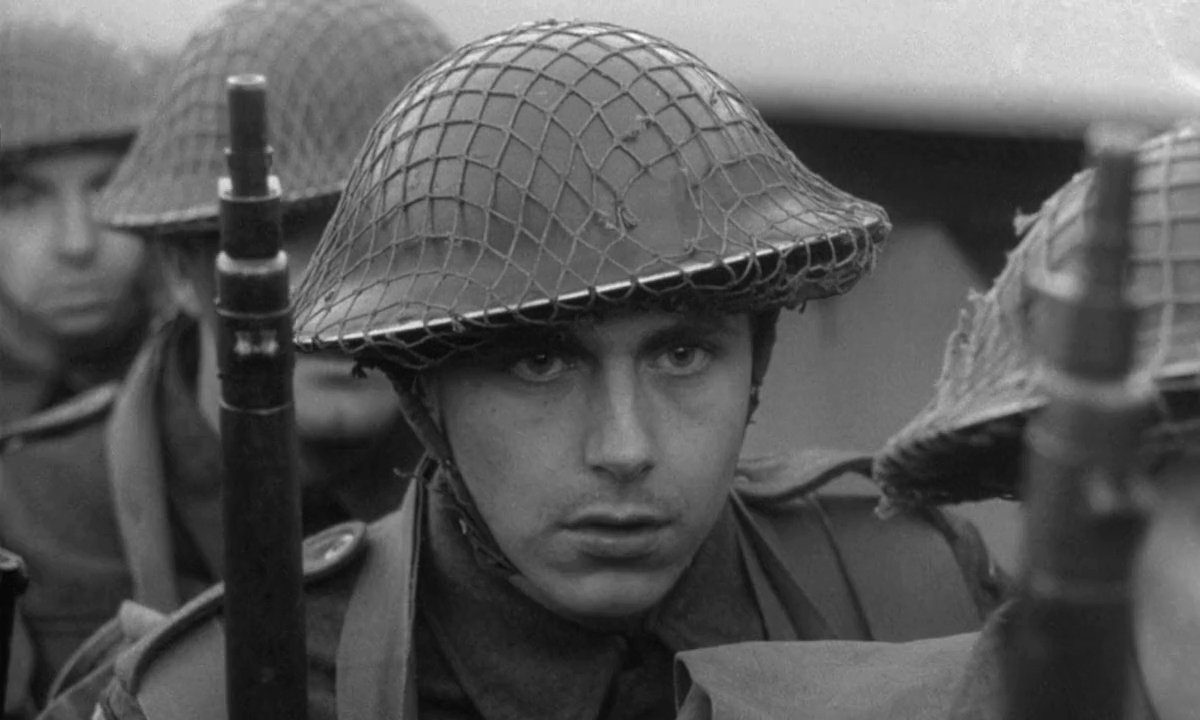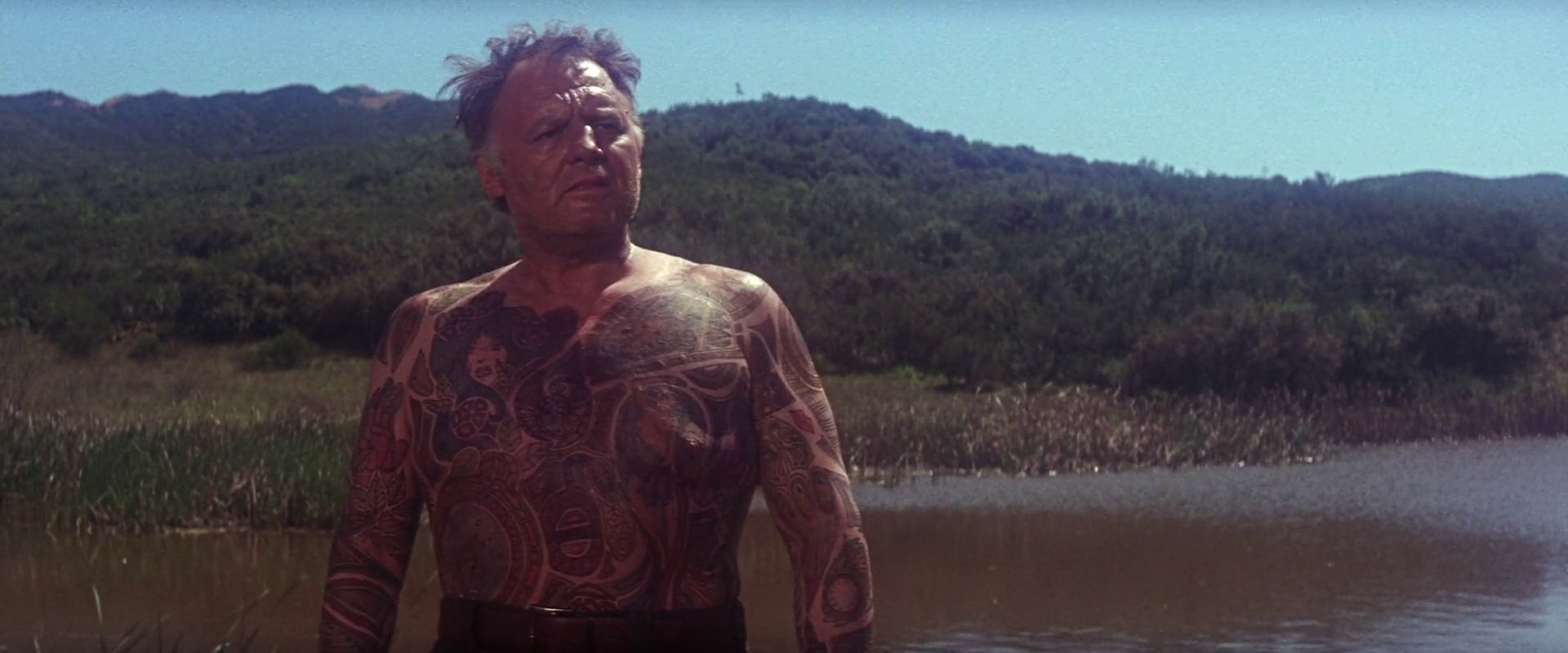Review: Overlord (1975)
Watching Stuart Cooper’s Overlord almost 50 years after its release and on the 80th anniversary of D-Day adds some clarity and perspective to this remarkable film, which takes its name from the codename for the Allied strategic operation of invading Nazi-occupied Europe. A landmark in style and historical filmmaking, Overlord combines a fictional story about a young British soldier training for D-Day with actual footage of the war taken from British archives. It’s a great blend of fact and fiction, with its fictional sequences shot to mimic the technical approach of the war footage. But when viewed today, when the film is closer to its events than to 2024, any discontinuities between the real footage and fictional story fade almost entirely. The result is an indelible document of war and sacrifice in the ever-receding past.
Constructed over the course of several years and released in 1975, Overlord is a feat of historical accuracy achieved through laborious research. Stuart Cooper spent thousands of hours (he estimated 3,000 hours in a 2008 article for The Guardian) sorting through archival footage from the Imperial War Museum. After assessing the immense footage at his disposal, and reading countless letters and diaries of soldiers within the museum’s archives, Cooper wrote (alongside Christopher Hudson) a simple narrative of a young soldier that would provide what the nonfiction reels could not. The fictional narrative provides a subjective viewpoint of the war, which captures the anxiety, apprehension, excitement, and despair of going into battle. The resulting story follows a young soldier, Brian Stirner’s Thomas Beddows, who is drafted for service in the East Yorkshire Regiment, trains in England, falls in love with a local girl (Julie Neesam), and then sees his first action when he lands on Sword Beach on D-Day.
The two sides of the film are intimately joined, but they do demonstrate the film’s twin interests. On the one hand, Overlord is something of a tribute to soldiers “who carried a camera instead of a rifle,” as Cooper wrote. Tasked with filming the battles they took part in, these soldiers produced footage that was mostly used for propaganda and news reels. But in the early 1970s, there was no need for propaganda and newsreels on World War II, so Cooper was able to repurpose this footage and transform it back into its original state: unadorned documentation. The footage of aerial bombings and training exercises and the eventual amphibious landings on the beaches of Normandy provide a detailed account of a time and place and the men that survived the battles. Thus, Overlord liberates the footage from the triumphant newsreels and congratulatory post-war documentaries that only ever painted the footage of D-Day and the war effort in a heroic light without emphasizing the personal sacrifice and cost of victory.
The fictional narrative also provides a sombre and personal perspective that the archival footage could never conjure. The central figure, Thomas, is not a heroic sort, but he’s not a coward either. He’s just an ordinary lad who is drafted, says goodbye to his mum and dad and King Charles spaniel Nancy, and does his duty the best he can. We watch him show up at the barracks for the first time, late because of his train being delayed by a service blackout due to German bombing raids. We watch his training and how he befriends a cynical fellow soldier, Jack (Davyd Harries). We watch him start a hesitant flirtation with a girl (Julie Neesam), which quickly transforms into his one chance at a romantic and sexual union before he goes off to war.
We soon learn through dialogue and dreamlike premonitions that Thomas is worried he won’t make it out of the invasion alive. As he says later in the film, when drafting a letter to his parents that he eventually burns, so many people have died in this war already, why would he assume his fate would be any different? He’s not so special. The little-known Brian Stirner is remarkable in the role. In terms of looks and some mannerisms, he’s reminiscent of both Keir Dullea and a young Christopher Guest, but he’s completely his own performer with an uncanny ability to get the most emotionally out of a sequence by underplaying the specifics. The key appeal of Stirner is that he’s always earnest, always vulnerable. He never comes across as acting, but rather matches the unadorned presentation of the footage.
It’s hard to overstate the fidelity of Cooper’s audiovisual approach. After studying the original nitrate negatives in the Imperial War Museum, Cooper and cinematographer John Alcott (who would work with Stanley Kubrick on Barry Lyndon) found some German Goetz and Schneider lenses from the mid-1930s and used them to shoot the fictional sequences. This use of outdated technology, along with their attention to detail regarding period lighting, makes the visuals of the fictional scenes seamless with the war footage.
Only the premonitions, which utilize slow motion, soft focus, and almost surreal images of Thomas dying in various ways, break from the kitchen sink realism of the first half of the film. But these premonitions are key to the film’s overall impact, capturing the sense of inevitably that D-Day holds within the war, both for the men who landed and the overall strategic plan of the war. Everyone knew that an Allied invasion of the European continent was coming. As well, the men who fought in it had no choice in avoiding the meat grinder of the beaches. The invasion was coming. The beaches were haunted by spectres of futured death, tormenting the dreams of those men moving towards them, as if Death were waiting on the beach for them like in Ingmar Bergman’s The Seventh Seal.
While the premonitions break from the realism of the rest of Overlord, they provide the perfect artistic and emotional companion to the understated drama and documentary footage of the rest of the film. The film captures the specifics of how the war must have looked and felt. It’s the rare film where the more distance we get from the film, and the event it depicts, the more real and vital the entire presentation becomes.
9 out of 10
Overlord (1975, UK)
Directed by Stuart Cooper; written by Stuart Cooper and Christopher Hudson; starring Brian Stirner, Davyd Harries, Nicholas Ball, Julie Neesam.



The Mask just might be the sharpest illustration of Jim Carrey’s comedic craft.